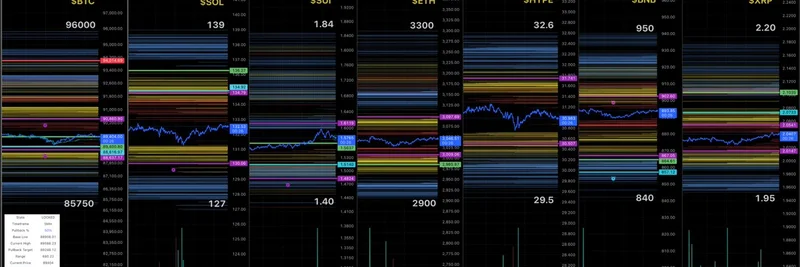In the fast-paced world of cryptocurrency, where volatility is the norm, exchanges like Backpack often find themselves in the spotlight—not always for the right reasons. Recently, a tweet from Armani Ferrante, the founder and CEO of Backpack, Mad Lads, and Anchor, sparked heated discussions across the crypto community. Ferrante suggested that the wave of fear, uncertainty, and doubt (FUD) targeting his exchange might be a orchestrated hit job by competitors. Let's break this down step by step, explaining the key concepts along the way, so even if you're new to blockchain trading, you can follow along.
The drama kicked off with a massive market liquidation event—think of it as a domino effect where falling prices trigger forced sales of leveraged positions, amplifying the downturn. This happened on October 11, 2025, affecting multiple exchanges, including Backpack. In response to user concerns, Ferrante posted a detailed explanation on X (formerly Twitter), clarifying how Backpack handled the situation. You can check out the original thread here.
In his post, Ferrante emphasized that Backpack acted swiftly and fairly. All traders were paid out automatically without delays, and there were no clawbacks—meaning no forced recovery of funds from profitable users to cover losses—or socialized losses, where the exchange spreads losses across all users. The team even published their daily proof of reserves, a transparency measure showing that the exchange holds enough assets to cover user deposits. Despite the chaos, operations continued uninterrupted, though not without some glitches due to the sudden drop in liquidity, which is the availability of assets for trading without major price impacts.
The controversy centered on a specific technical aspect: settlement in perpetual futures trading. Perpetual futures, or "perps," are contracts that allow traders to bet on the price of assets like cryptocurrencies without an expiration date. They're popular for leveraging positions—borrowing money to amplify gains (or losses). Ferrante explained that Backpack operates as a neutral platform, matching longs (bets on price increases) with shorts (bets on decreases). It's a peer-to-peer system where winners' profits come directly from losers' losses—zero-sum game, no money printed out of thin air.
During the cascade, some losing positions went bankrupt, meaning their collateral ran out. This left settlements in limbo until those users deposited more funds. A small group—about 40 users—inadvertently deposited before the exchange could manually settle all accounts, leading to an automatic transfer of around $40,000 to winners. Critics latched onto a screenshot of Ferrante's Discord message explaining this mechanic, twisting it to suggest Backpack was unfairly seizing deposits. But as Ferrante clarified, this wasn't a policy choice; it was how the system fundamentally works to ensure fairness between traders.
Ferrante's follow-up tweet, posted on October 12, 2025, ramped up the intrigue: "Call me crazy, but the sheer scale of the FUD over the past day makes me think it’s a paid operation by a competitor." He pointed out that the issue affected only a tiny fraction of users and funds, questioning why such a "weak" argument went viral. Real Backpack users, he argued, would focus on more substantial critiques if they had any. This suspicion isn't unfounded in crypto, where competitive rivalries can lead to smear campaigns, especially as Backpack gains market share on the Solana blockchain, known for its speed and low fees—perfect for trading volatile meme tokens like those inspired by internet culture.
Replies to Ferrante's tweet showed a mix of support and skepticism. Some users, like @kdotcrypto, attributed the backlash to misunderstandings of perp mechanics rather than malice, while others encouraged Ferrante to keep building. One reply even hinted at ties to a rival exchange, Lighter, though Ferrante distanced himself from directly accusing them.
For anyone affected, Ferrante directed them to email [email protected] or join the Discord for assistance. This hands-on approach aligns with Backpack's reputation for community focus, especially in the Solana ecosystem where meme tokens thrive on hype and rapid trades.
What does this mean for meme token enthusiasts? Events like this highlight the risks of leveraged trading on volatile assets. Meme tokens, often driven by social media buzz rather than fundamentals, can see extreme price swings, making perps a high-stakes playground. Backpack's transparent response could actually bolster its appeal among savvy traders who value robust risk management over sensational headlines.
As the crypto market evolves, stories like this remind us to dig deeper than viral tweets. Backpack continues to innovate, with features like its wallet app and exchange app available for download. If you're diving into Solana-based memes, keeping an eye on platforms like this could give you an edge. Stay informed, trade smart, and remember: in blockchain, transparency wins the long game.

